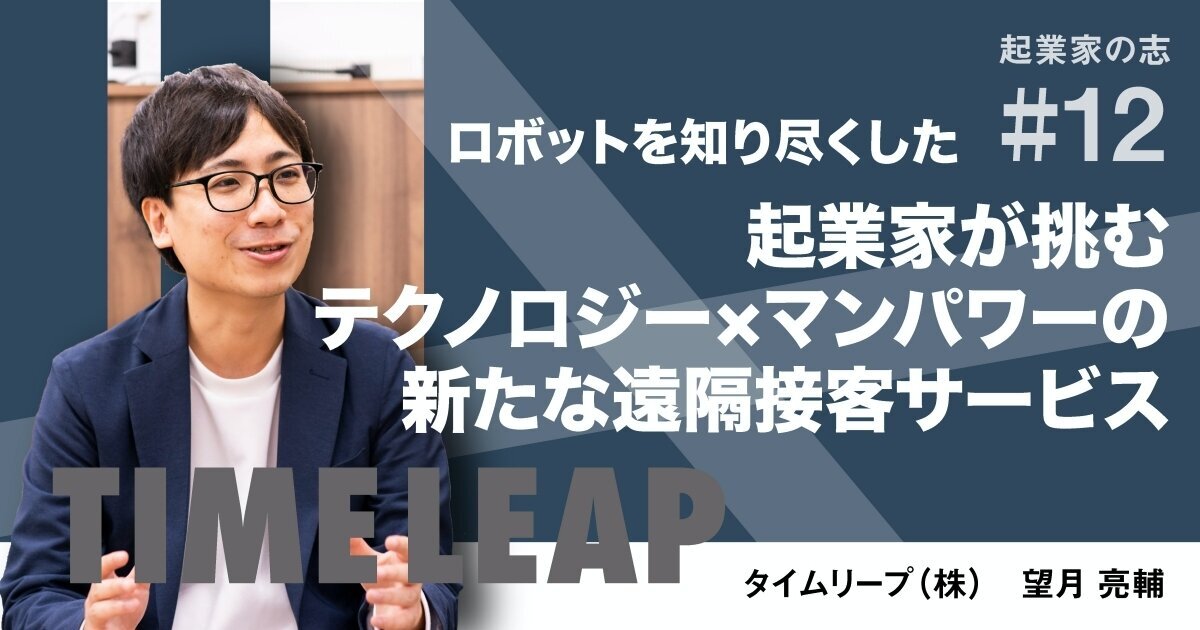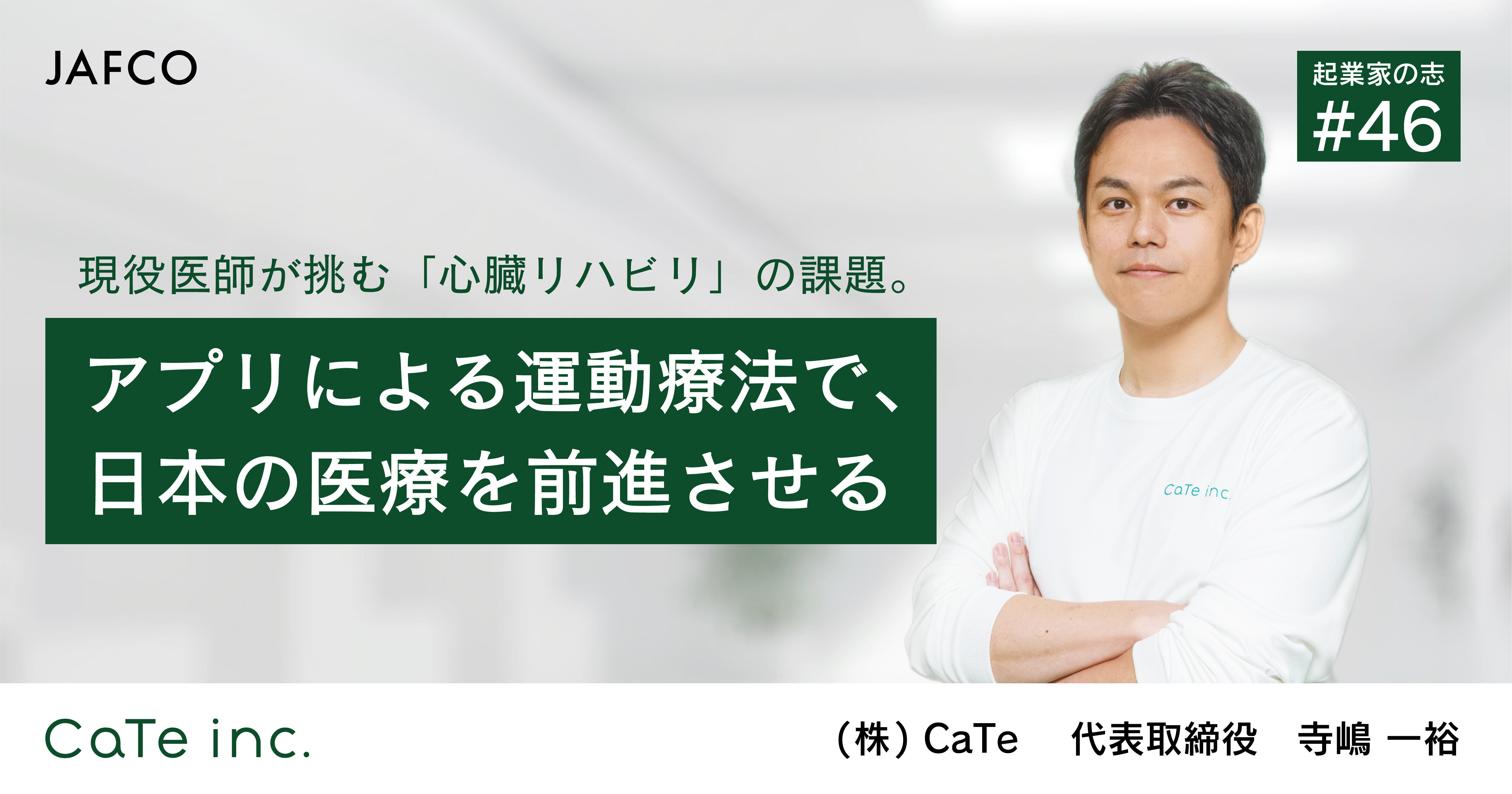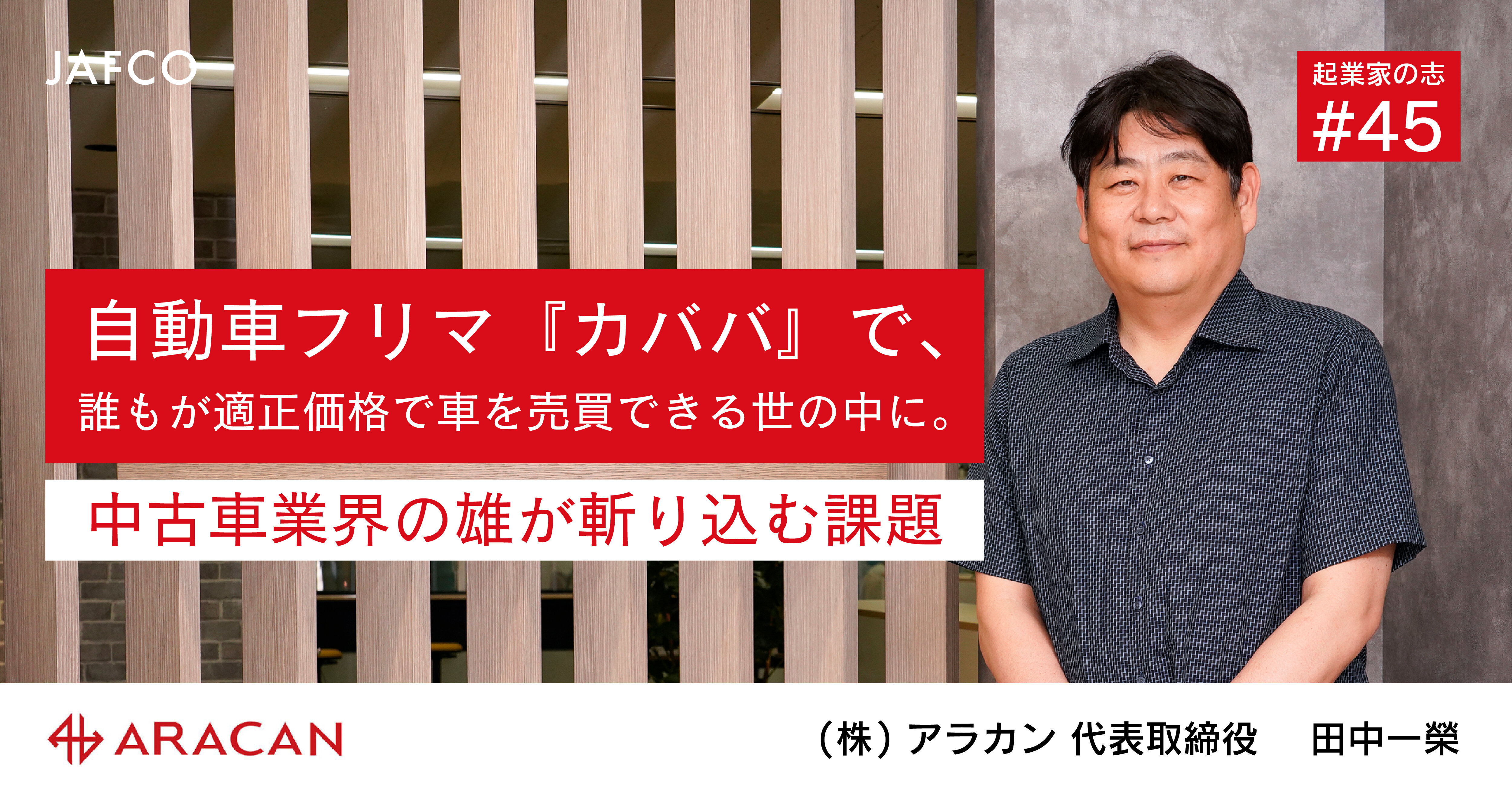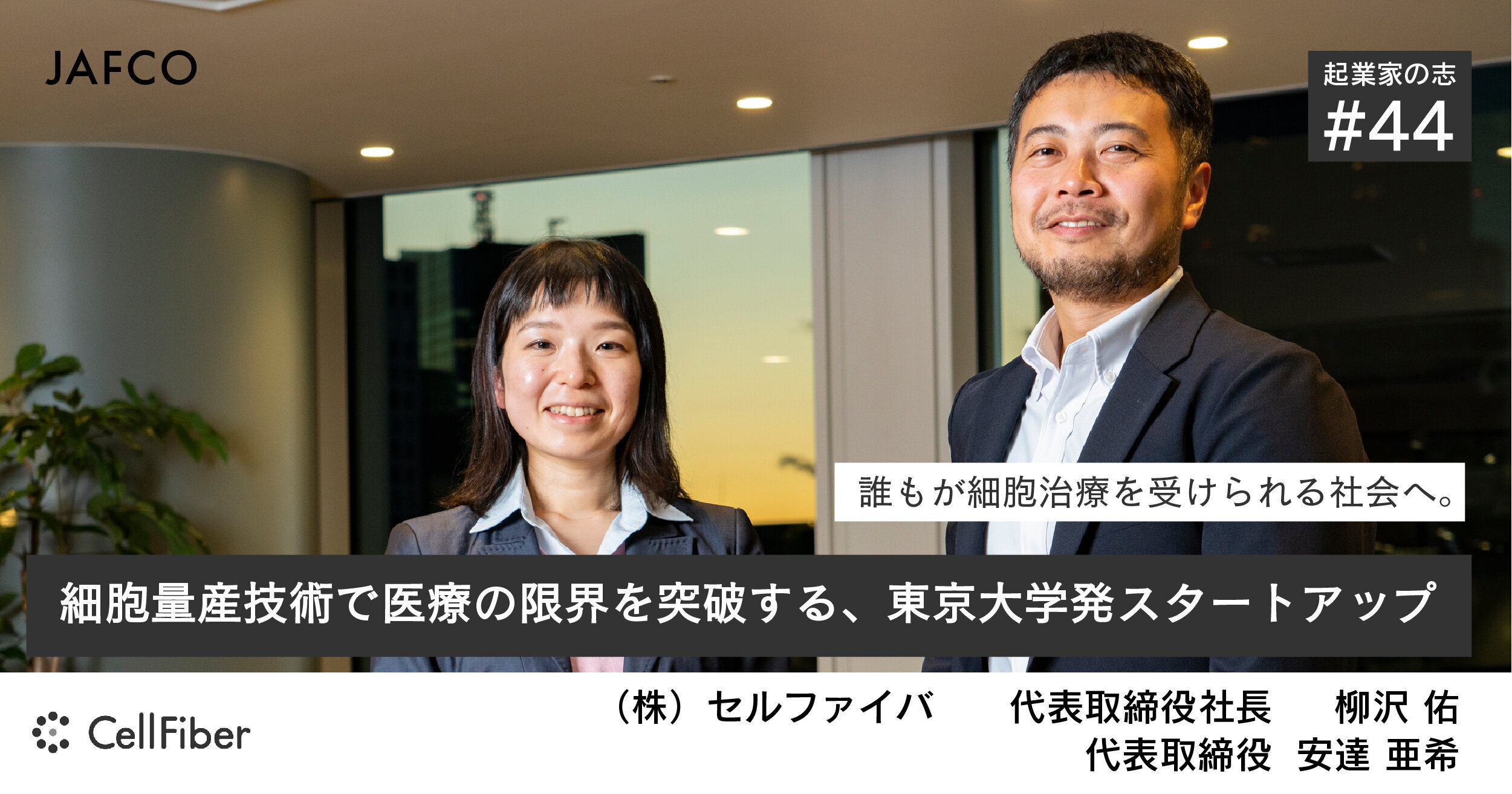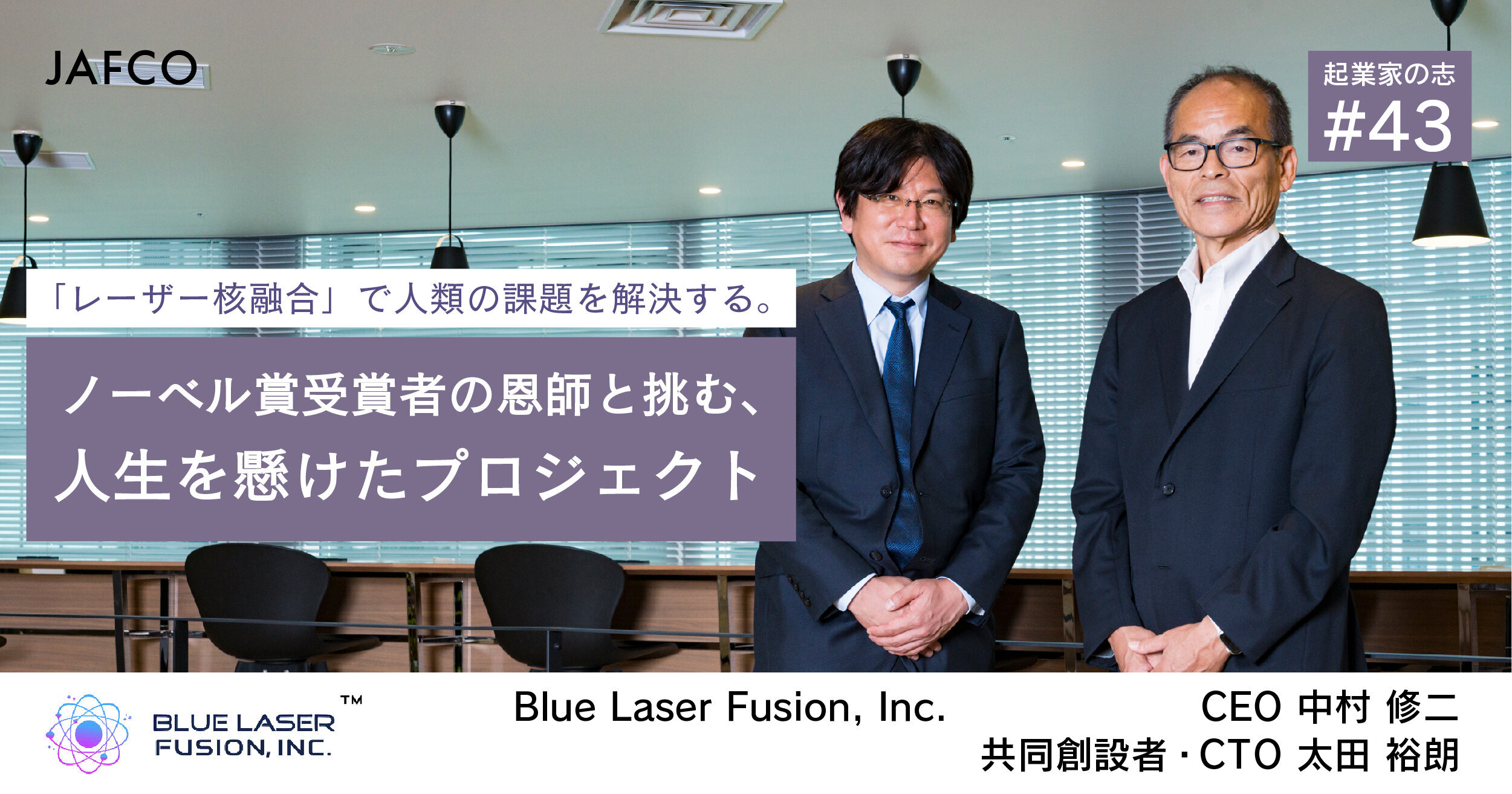"Entrepreneurial aspirations" to hear the background of deciding to start a business, the conflict until the business gets on track, and the desire to realize through the business.
In the 12th session, we interviewed Mr. Ryosuke Mochizuki, CEO of Timeleap Inc., Ltd., which provides the remote customer service "RURA".
【profile】
Ryosuke Mochizuki, CEO of Timeleap Inc.
Born in 1988. After graduating from university, he started a business after working for a major telecommunications company and a video media venture company. After selling the business, he has been the editor-in-chief of robot media as an officer at a startup. He retired from the company in 2019 and established Time Leap, which continues to the present day.
[What's Timeleap Inc.]
Time Leap provides the remote customer service "RURA" with the vision of "realizing a world where time can be used most importantly". Working people around the world spend about 2,000 hours a year on work. It's been the norm for hundreds of years. By changing the social structure with the power of technology, we want to free humankind from labor and realize a world where everyone has the option of spending their time on what is most important to them. ..
Launched robot media, incorporated, and sold
-When did Mochizuki want to start a business?
Since I was a student. I had a dream of going to space, and I thought it would be difficult to become an astronaut and it would be more realistic to save money (laughs), so I started aiming for entrepreneurship.
-The motive is unique! Why were you attracted to the universe?
I think it's because I can't imagine it at all. In the case of overseas, I can imagine somehow even if I have never been there, but the universe is completely unknown.
-After graduating from university, you got a job without starting a business right away.
The company had a manager training program, which stated that "you can become a manager within three years." However, the program broke down in the middle, so I quit the company and lived like a NEET for a year.
After that, I got a job at a startup that distributes videos of entrepreneurs. I thought I could learn a lot here while expanding my network with entrepreneurs. I used to think that the president is charismatic and can only involve people around him with tremendous power, but after working for this company, I learned that there are various types of entrepreneurs. rice field. For the first time, I thought, "I might be able to be myself as I am now."
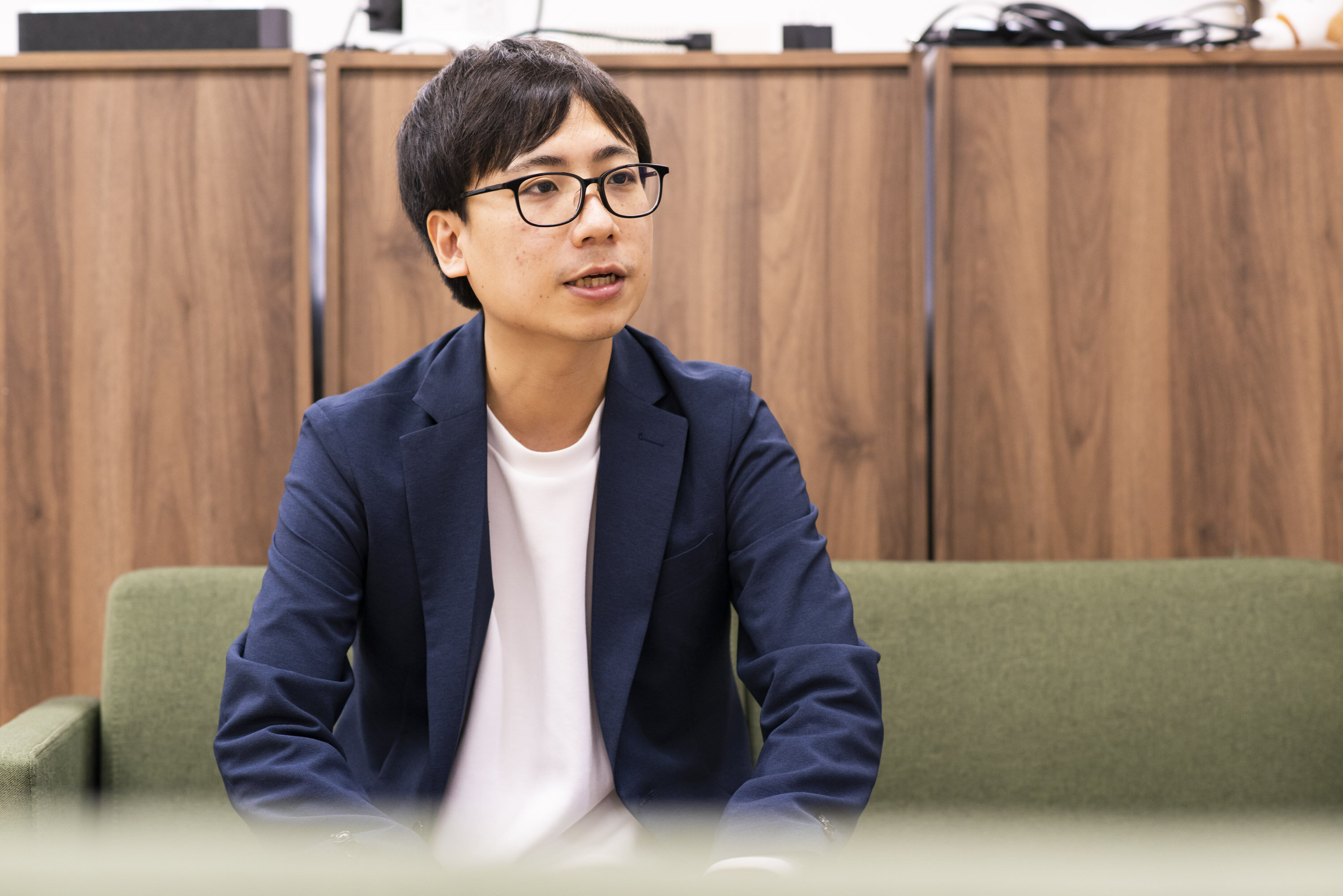
-That experience helped you start a business, didn't you? You started the robot information media independently, but why did you choose "robot"?
After working for a year and a half, I became independent and initially undertook website production, but at that time Softbank's Pepper was just announced. I was very excited about the story of Masayoshi Son at that time. I was excited about the future when robots would enter the home in earnest, and since Japanese industrial robots were already active in the world, the future will continue to evolve as a business originating in Japan. I was also excited.
I was collecting information on robots there, but most of the robot-related media at that time was specialized for science. I was also a liberal arts student at university, so I wish I had a medium that even ordinary business people like myself could understand. Therefore, in 2014, I personally launched a robot information media called "Robot Dot Info" (currently Robosta), and started to go to various places for coverage and publish articles.
-Since then, the situation has changed rapidly, such as being incorporated and selling media to Robot Start Co., Ltd., which develops AI and robotics businesses.
Incorporation is half a year after the launch of the media. The sale was about a year later. Interview with Mr. Yoshihiro Nakahashi, the representative of Robot Start I got acquainted with him and asked him to say, "I want to grow the media together." I didn't have the detailed management know-how, so when Mr. Nakahashi showed me the story of listing, I felt regretful that I lost. It will be a useful medium for many people if it is operated together. With that in mind, I decided to sell the business and became the director and media editor of Robot Start.
Remote customer service "RURA" was born from knowing the limits of AI
-Please tell us how you decided to establish Time Leap.
"Robosta" has grown to become one of the largest robot media in Japan, and we are in a position to receive various information, but there were areas where robots have not been able to replace it well. That is "customer service".
Customer service with AI will become more accurate as customer service data is accumulated. However, when the first customer service is received from AI, if the response is incorrect or if the answer is not good, people will give up and stop talking. Therefore, there was a problem that customer service data was not collected at all.
The accuracy of customer service, which is called a scenario type, such as "If you say A, answer B," will increase as technology evolves. However, customer service does not consist of that alone. The current situation is that it will take more time for AI to be able to serve customers while judging their facial expressions and short periods of time.
-From there, the remote customer service "RURA", which successfully combines technology and human customer service, was born.
Yes. This is a service in which the staff of the company to which the product is installed or RURA workers from all over the world who belong to our company provide remote customer service at multiple stores through the system. This makes it possible to reduce the labor cost of staff, which used to be around 1000 yen per hour, to less than half while maintaining high quality of customer service.
The benefits are not limited to the store side. It is strange that we cannot eat without work even though we are in an era of satiety. I think technology and robots will replace human labor so we can spend more time on what's important. Therefore, we have a vision of "realizing a world where time can be used most importantly."
In today's society, bosses are great and people who can work are great. However, if the social structure itself changes, there will be many other people who can play an active role. We want to realize a world where each person can devote himself to what he wants to do and play an active role in his or her own way through their own services.
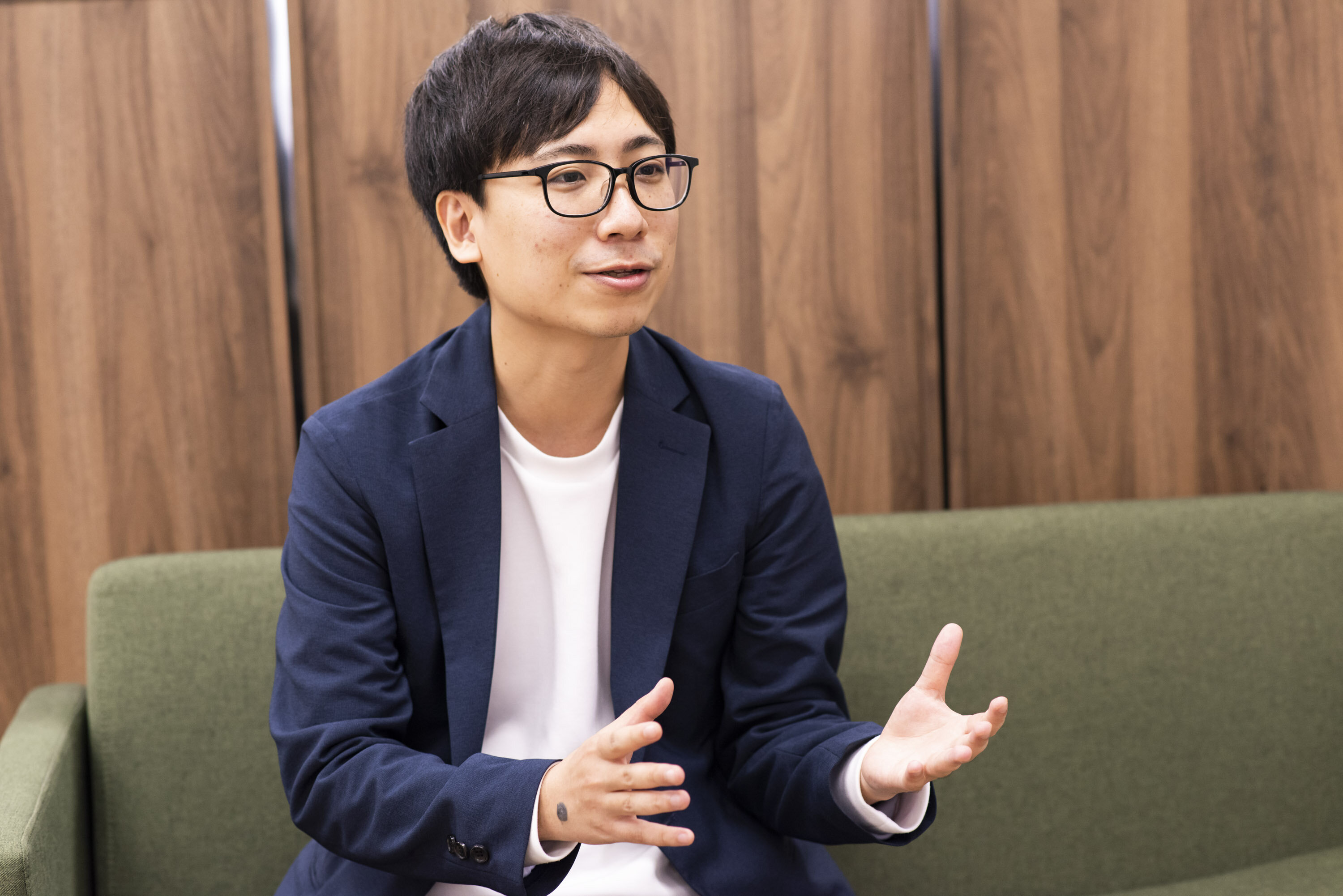
-What kind of path have you taken from the establishment of the company in June 2019 to the release of "RURA" a year later?
I thought about a service model while experiencing customer service in a coworking space run by the president of an acquaintance, and proceeded with development with the director of the co-founder and the engineer who is still working as an employee. When I actually entered the customer service site, I realized once again that it would take more than 10 years to completely replace AI.
In the first place, there are more manual parts in customer service than you can imagine, such as "getting your personal information filled in, creating a membership card, and handing it over." Remote customer service cannot be achieved by reducing the work that can only be done face-to-face, so we started with digitalization proposals such as "register personal information from the form" and gradually introduced the service as a test.
-I think the response was great because it was released in the midst of the corona wreck.
Actually, I decided to do it in stealth until the form of this service was completed, so at first I was trying to proceed without disclosing information to the outside. Meanwhile, a pandemic occurred, and remote customer service began to attract attention. Conflicts have also begun to appear. So I decided to release it in a hurry.
It was unplanned, but as a result, I feel that market recognition has advanced. Our system had the advantage of being able to handle "multiple stores with multiple staff" and "100 stores with 20 people" against the competition of "multiple stores with one staff member", so we learned about "RURA" through the services of the competitors. The number of people who have introduced it has increased. We have received inquiries from about 300 companies in the past year.
-Are there any formats that have a lot of inquiries and introduction records?
It's an impression that it fits into business formats with reception such as coworking spaces, hotels, and karaoke. It has been introduced in model houses and dental clinics, including the complex cafe "Space Create Jiyu Space". The results are excellent, such as being able to operate with a quarter of the number of people so far.
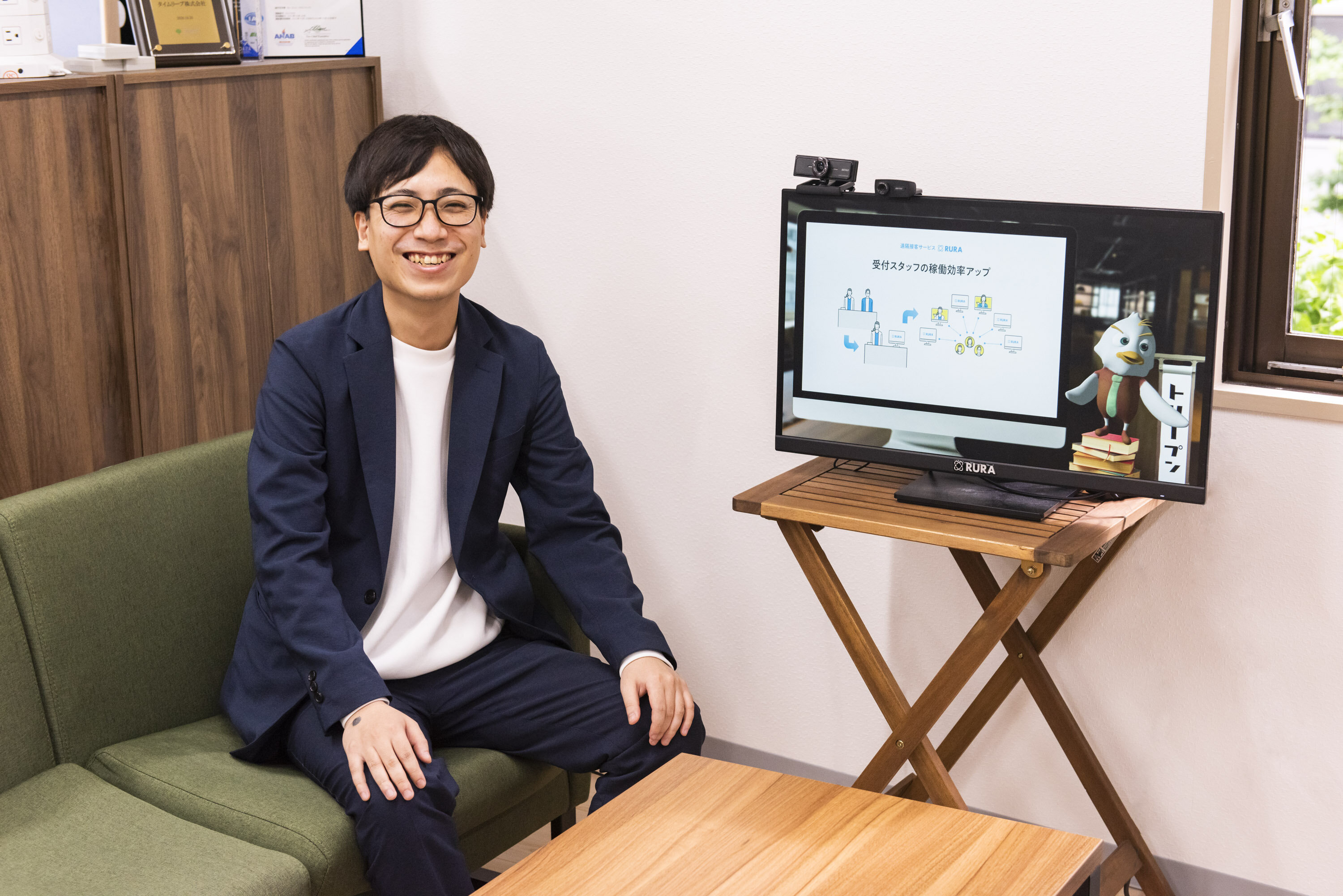
To expand business / organization after raising funds
-A total of 180 million yen was raised in a seed round in March 2021. Please tell us about your encounter with JAFCO.
When I was still a director of Robot Start, I took the stage at an event in the robot industry, and Mr. Kiyota of JAFCO was there to exchange business cards. After that, at the timing of establishing Time Leap or not, I contacted him because I wanted feedback on the business rather than investment consultation.
JAFCO received various support even before the investment. As I heard from an entrepreneur I knew, "JAFCO will support me generously," I was introduced to senior executives of major companies that I couldn't connect with by myself as potential customers, and sales. You can listen to the customer's voice directly with the bank... It will be a great power for us to be able to invest from the largest VC in Japan. I was convinced that, and I came to raise funds.
-What kind of support do you currently receive?
Capitalists Mr. Kiyota and Mr. Takahashi are in charge of regular meetings and financial support. From the experience unique to two people who are looking at various companies, it is very encouraging to be alerted in advance of problems that may be in the future.
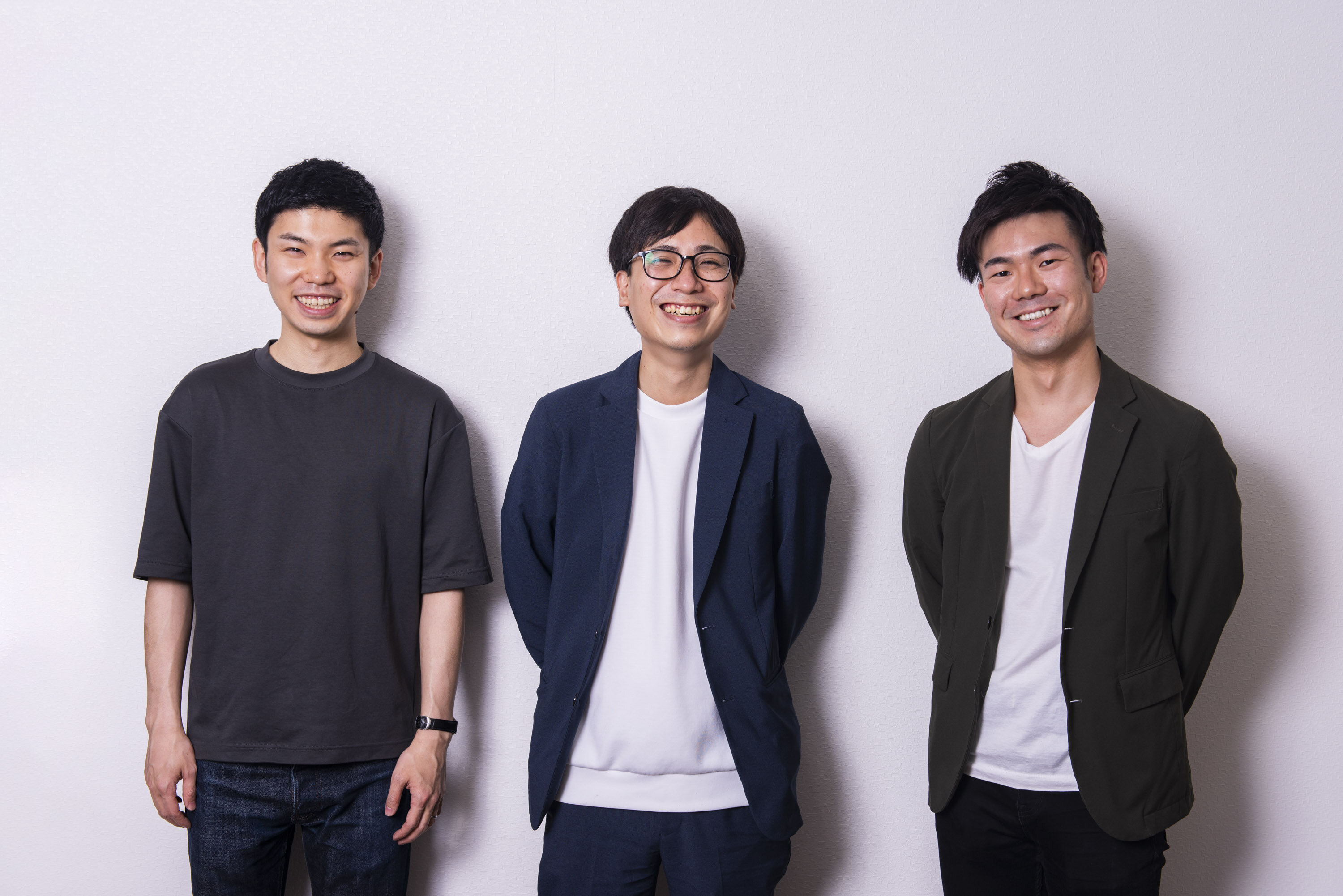
Mr. Mochizuki (center), JAFCO's capitalist Takahashi Iria (left), Satoshi Kiyota (right)
-What kind of business development are you looking forward to after raising funds?
First of all, I would like more companies and more industries to use it. On top of that, we would like to focus on expanding the functions. In the past, the customer service data of the company was not accumulated anywhere, so most companies do not even know how many minutes the staff of the company is serving customers in an hour. I would like to utilize the data accumulated in "RURA" to develop functions that enable more efficient customer service, such as "answer each time you are asked with AI."
The number of unmanned convenience stores is increasing, but in reality, the more unmanned, the more "RURA" is needed. This is because when something goes wrong, if there is "RURA", the staff can actively talk to them by looking at the store and provide remote support.
-While face-to-face customer service is responsible for improving the efficiency of the main store, it is a service that makes up for the lack of unmanned and AI-enabled stores. How do you plan to expand your organization as your business expands?
The most important position in this business is customer success. In order to enjoy the full benefits of "RURA", it is important not only to introduce it but also to master it. If the results are achieved, the possibility that they will be expanded horizontally to other stores of the company will increase. Therefore, we plan to strengthen the recruitment of customer success in the near future.
It's definitely more fun to start a business with friends than alone
-What kind of time is Mochizuki-sama's motivation going up the most?
After all, it was when I heard good voices from customers at the installation site, such as "improved customer service efficiency" and "remote contracts were obtained". Not only the voice but also the data shows whether the customer is mastering "RURA", so it makes me happy when I see the numbers such as "2000 times of remote customer service in 2 weeks". There are times when I'm wondering if it's really useful to customers, but when I can realize these results, I'm motivated to "grow the company even more."
Robots in various fields are already operating without human resources. In terms of customer service, the time may come when there will be no need for human intervention. At that time, the idea that "AI will release you from work" rather than "AI will rob you of your work" will permeate, and money will circulate in a different way to those who originally did that work. I want you to be done. That is my ideal society where humans and robots coexist.
-You mentioned that you learned that there are various types of entrepreneurs at the company you used to work for. What type of entrepreneur do you think you are?
An entrepreneur who knows he can't. Reliable employees make up for my shortcomings, so I think that rather than being the driving force behind the company, we all follow each other and grow the company together.
-Finally, could you give some advice or messages to junior entrepreneurs?
I can't give you any advice, so can I give you some advice when you started your business? (smile). When I was the first company, I started my own business, so even if I tried to expand the world, there was a limit. But now it's up to someone who can do what they can't do, and they can support someone. Finding various reliable friends and taking on challenges together is far more fun than just one person. I want to tell myself at that time.

